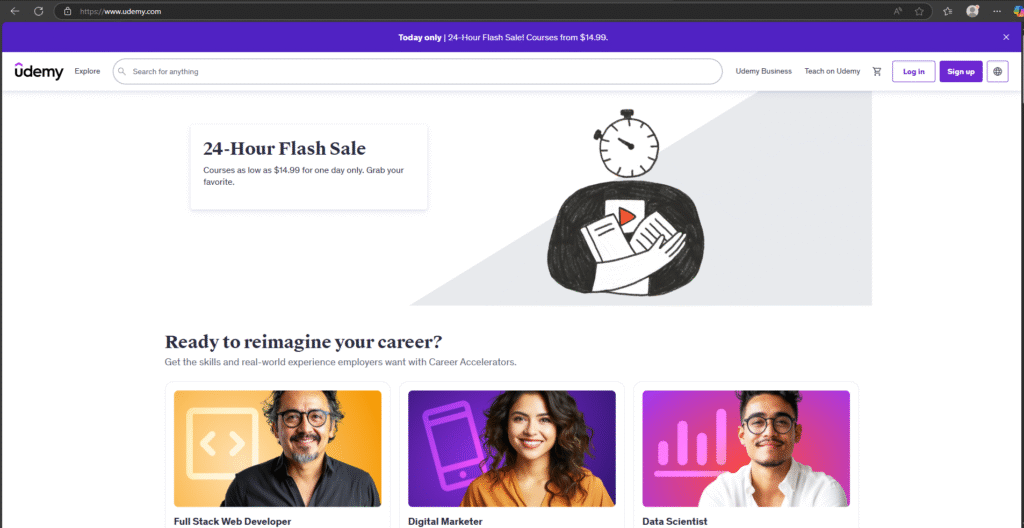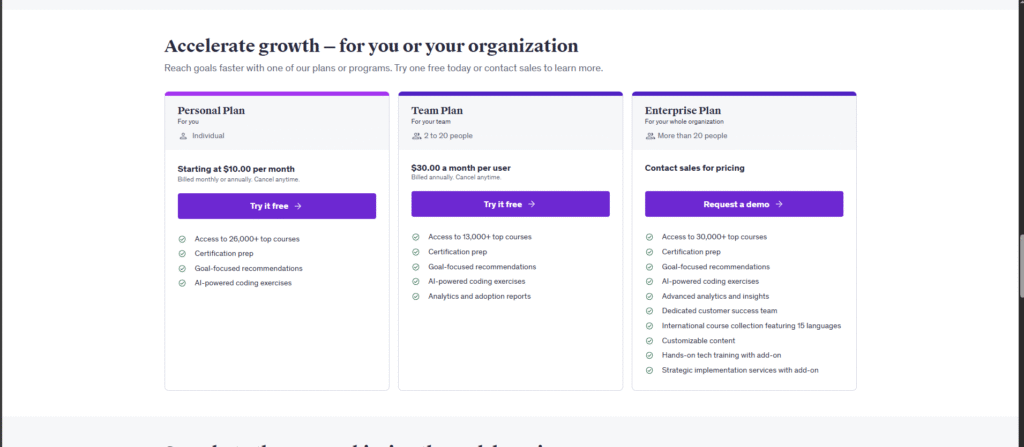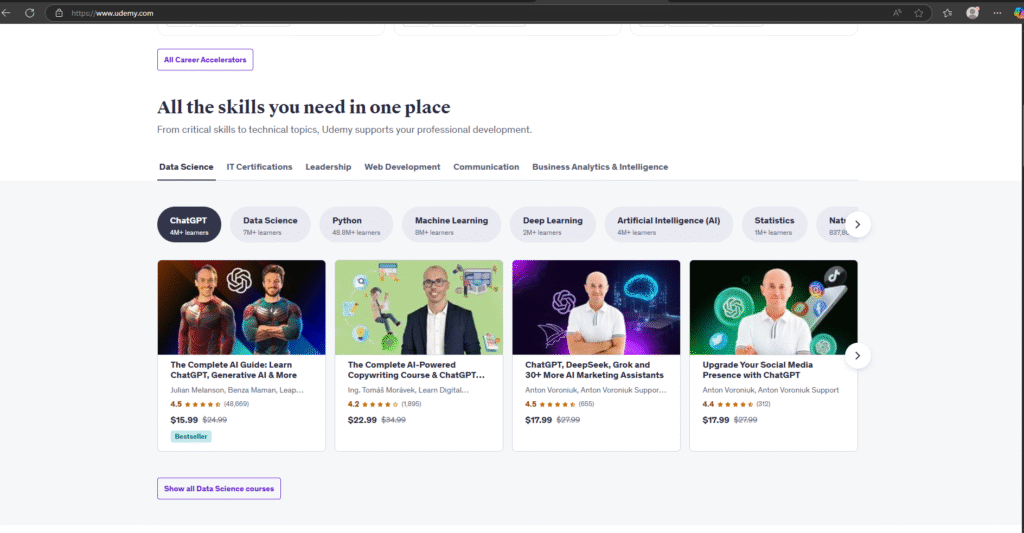Introduction
With thousands of options available at your fingertips, choosing the right Udemy online course can feel overwhelming. Whether you’re looking to boost your career, learn a new skill, or explore a passion project, Udemy offers something for everyone — but not all courses are created equal.
In this guide, we’ll break down the 10 most important factors to consider before enrolling in a Udemy online course. From instructor expertise to real-world applications, we’ll help you cut through the noise and find the course that’s truly worth your time and money.
By the end, you’ll know exactly how to spot high-quality courses and make confident, informed learning decisions on Udemy.

Course Content Quality
When evaluating any Udemy online course, content quality should be your top priority. A course might have a catchy title or thousands of enrollments, but if the material is outdated, shallow, or poorly structured, you won’t get much value.
Look for courses that offer:
- Comprehensive coverage of the topic — not just surface-level insights.
- Structured lessons that build on each other logically.
- Clear explanations, supported by examples, visuals, or demonstrations.
- Supplemental resources like downloadable PDFs, templates, or quizzes to reinforce learning.
Take time to preview the course curriculum and watch the free preview videos Udemy offers. This will give you a feel for the instructor’s teaching style and the overall depth of the material.
Pro Tip: Check when the course was last updated. Regular updates are a good sign the content stays relevant, especially in fast-changing fields like tech, marketing, or design
Instructor Expertise & Reputation
The quality of any Udemy online course is closely tied to the instructor behind it. A knowledgeable, engaging, and responsive instructor can make a huge difference in your learning experience.
Before enrolling, take a moment to research the instructor’s:
- Professional background – Do they have real-world experience or formal education in the subject?
- Teaching credentials – Have they taught other successful courses or received awards?
- Student reviews – Look at comments specifically about the instructor’s clarity, engagement, and responsiveness.
- Instructor rating – Udemy provides an overall instructor rating based on student feedback across all their courses.
Many top instructors also include a detailed bio and LinkedIn profile, which you can use to verify their credibility. If the instructor is active in the course Q&A or regularly updates content based on feedback, that’s a strong signal they’re invested in your success.
Pro Tip: Trust instructors who offer transparency—those who clearly outline what you’ll learn, who the course is for, and what prerequisites (if any) are needed.
Course Ratings & Student Reviews
One of the best ways to judge the quality of a Udemy online course is by reading what past students have to say. Ratings and reviews offer real-world insights into the course’s strengths — and potential weaknesses.
Here’s what to look for:
- Overall rating (out of 5 stars): Courses rated 4.5 and above are typically well-received.
- Number of ratings: A high rating backed by thousands of reviews is more reliable than one with only a handful.
- Recent reviews: Sort by “Most Recent” to see how current students are experiencing the course — especially after recent updates.
- Detailed feedback: Look for thoughtful reviews that mention specific pros and cons, like course pacing, depth, or instructor responsiveness.
Watch for recurring comments. If multiple students praise the course’s clarity or complain about outdated content, there’s probably some truth to it.
Pro Tip: Scroll through the 1–3-star reviews as well. They often highlight specific gaps or issues that might be relevant to your learning style or expectations.
Course Price & Value for Money
One of the most appealing things about a Udemy online course is its affordability. Courses often range from $10 to $200, but thanks to frequent discounts and promotions, you can usually enroll for a fraction of the listed price.
When considering value for money, keep these points in mind:
- Look for discounts: Udemy regularly runs site-wide sales, dropping prices as low as $9.99 or $13.99. Timing your purchase right can save you a lot.
- Compare course length and depth: A longer course isn’t always better, but if it offers more comprehensive training, hands-on projects, and extras like quizzes or templates, it might justify a higher price.
- Check what’s included: Some courses come with downloadable resources, lifetime access, and even coding exercises or real-world projects — all of which add value.
- Refund policy: Udemy offers a 30-day money-back guarantee, so you can try a course risk-free. If it doesn’t meet your expectations, you can easily request a refund.
Pro Tip: Don’t just go for the cheapest course. Think about the return on investment — whether it helps you gain a skill, land a job, or launch a project, that’s where the real value lies.

Certification & Career Value
A big question many learners have is: “Will a certificate from a Udemy online course help my career?” The answer depends on your goals — but there’s real value to be had if you use it strategically.
Here’s what to know:
- Certificate of Completion: Most Udemy courses offer a certificate once you finish all the content. While it’s not accredited by universities or official institutions, it still has merit.
- Portfolio Boost: If you’re learning skills like coding, design, marketing, or writing, Udemy projects and certificates can enhance your resume or online portfolio.
- Employer Recognition: Some employers appreciate Udemy certificates, especially in tech, digital marketing, and freelancing industries, where skills matter more than formal degrees.
- Skill Validation: More important than the certificate itself is the ability to demonstrate what you’ve learned — through portfolios, practical knowledge, or on-the-job performance.
Pro Tip: Pair your certificate with a personal project or case study to showcase your skills. This makes your learning more tangible and marketable to clients or hiring managers.
Learning Format & Teaching Style
Not all learning styles are the same — and not all Udemy online courses are structured alike. That’s why it’s important to choose a course that fits how you learn best.
Here’s what to look at:
- Video lectures: Most Udemy courses are video-based, but check if the videos are engaging, well-paced, and professionally produced.
- Supplementary materials: Quality courses often include downloadable resources, assignments, coding exercises, or slide decks.
- Interactive elements: Quizzes, challenges, and hands-on projects can reinforce learning and keep you engaged.
- Teaching style: Some instructors are straight-to-the-point, while others take a more relaxed, conversational approach. Use the preview videos to see if their style works for you.
- Captions & accessibility: Many courses include subtitles, which are helpful for non-native English speakers or learners with hearing impairments.
Pro Tip: Look for a course that includes real-life examples or use cases — this makes the material more relatable and easier to apply in the real world.

Course Duration & Time Commitment
Before enrolling in any Udemy online course, it’s crucial to understand the time investment required to complete it — especially if you have a busy schedule.
Consider these factors:
- Total video hours: Udemy courses range from short crash courses (1-2 hours) to comprehensive programs with 20+ hours of content. Check the total video length to match your availability.
- Pacing: Since Udemy courses are self-paced, you can learn on your own schedule. This flexibility is perfect for balancing work, family, or other commitments.
- Assignments and projects: Some courses require additional time for hands-on exercises or quizzes, so factor those in.
- Realistic timeline: Be honest about how much time you can dedicate weekly, and pick a course that fits your learning rhythm to avoid burnout or dropping out.
Pro Tip: Set a study schedule or goal (e.g., one lesson per day) to stay consistent and make steady progress toward completing the course.
Community Support & Student Engagement
Learning doesn’t have to be a solo journey, and many top Udemy online courses offer valuable community features that enhance your experience.
Key things to consider:
- Discussion forums: Most Udemy courses have a Q&A section where you can ask questions, share insights, and get help from instructors or fellow students.
- Instructor interaction: Check if the instructor actively responds to questions and engages with students — this can greatly improve your learning.
- Peer support: Engaging with other learners helps you stay motivated and gain different perspectives on the material.
- Study groups or social media communities: Some instructors or course creators offer Facebook groups, Slack channels, or Discord servers for extra support.
Pro Tip: Before enrolling, browse the course Q&A section to see how responsive and active the community is. A lively community often means faster problem-solving and richer learning.
Course Updates & Lifetime Access
One of the standout benefits of a Udemy online course is the promise of lifetime access—meaning once you buy a course, you can revisit the material anytime, anywhere.
Here’s what to keep in mind:
- Lifetime access: Unlike traditional courses, Udemy lets you learn at your own pace and review lessons whenever you want, making it perfect for ongoing skill refreshers.
- Course updates: Check how often the course content is updated. Fields like technology, marketing, and design evolve quickly, so regularly updated courses ensure you’re learning the latest information.
- Instructor commitment: Some instructors actively add new lectures, update resources, and respond to student feedback by improving the course over time.
- Notifications: Udemy notifies enrolled students when major updates are made, so you won’t miss new content or improvements.
Pro Tip: Choose courses where the instructor demonstrates a commitment to keeping the course current — it’s a sign they care about delivering lasting value.
Real-World Applications & Projects
The true value of any Udemy online course lies in how well it prepares you to apply what you’ve learned in real life.
Look for courses that offer:
- Hands-on projects: Practical assignments, case studies, or exercises that let you practice skills as you go.
- Portfolio-building opportunities: Projects you can showcase to employers or clients, especially important for creative or technical fields.
- Job-ready skills: Training that focuses on in-demand tools, techniques, or industry standards.
- Problem-solving scenarios: Realistic challenges that simulate workplace situations, helping you think critically and adapt your knowledge.
Courses that emphasize real-world applications help bridge the gap between theory and practice, boosting your confidence and making your learning more effective.
Pro Tip: If possible, choose courses with downloadable project files or templates — these resources can be invaluable when you start your own projects or freelance work.
…
Conclusion
Choosing the right Udemy online course can be a game-changer for your personal growth and career development. By carefully considering factors like course content quality, instructor expertise, student reviews, and practical applications, you can find courses that truly deliver value and help you achieve your learning goals.
Remember to evaluate the price, certification benefits, community support, and course updates to ensure your investment pays off in the long run. With Udemy’s vast library and flexible learning formats, there’s something for every learner — but the key is knowing how to pick the best course for you.
Take your time, do your research, and use the tips in this guide to make confident decisions. Your ideal Udemy online course is out there — ready to help you unlock new skills and opportunities.

